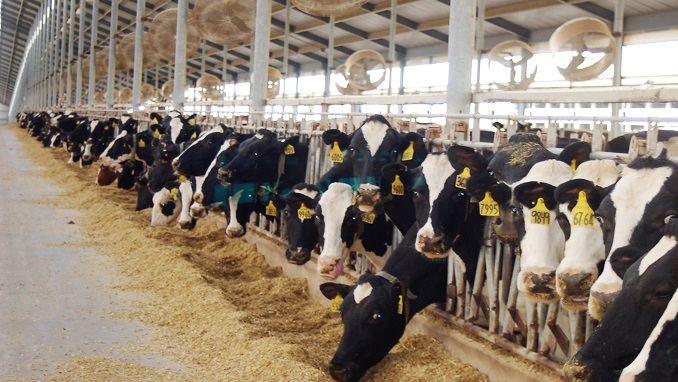Five years after the food embargo banning European finished dairy products, Russian companies are trucking in thousands of cows from the EU to state-of-the-art milking parlors built with German and Swedish engineering, Bloomberg writes.
President Vladimir Putin’s ambitious plan to transform Russia from a major milk importer to self sufficiency within eight years has turned the country into the biggest importer of cows from the European Union, the report says.
In the longer term, Russia has set its sights on selling milk to the biggest market of all: China.
“Conditions in Russia for dairy farming are very good,” said Stefan Duerr, founder of Ekosem-Agrar, Russia’s largest milk producer. “This means affordable land of good quality, good climate and government subsidies.”
Duerr, who hails from Germany and started out as an intern on a pig farm during the last months of the Soviet Union, said Ekosem-Agrar is rapidly expanding. The company opened eight new dairy facilities this year and increased its milking herd sevenfold to 80,500 animals since 2012.
So far this year, Russia has bought 45,000 heifers worth about 100 million euros ($111 million) from the EU, according to customs data. It’s likely to be the biggest importer for a second year in a row. Those figures are double the level from 2016.
Since Russia banned the import of European food in retaliation for Crimea-related sanctions in 2014, the dairy industry has attracted more than 200 billion rubles ($3.1 billion) of investment, based on estimates from the National Dairy Producers Union.
Russia has a track record of pumping money into the agriculture industry through a system of state subsidies, discounted loans and farm rebates. The country is now self-sufficient in poultry and pork after government programs funding new investments and dominates the global wheat industry.
It’s reaping the benefits of generous subsidies. Ekosem-Agrar can access bank lending at interest rates of 2.5%, compared with the Russian central bank’s key rate of 7%, Duerr said. The government also offers refunds of 25% on investments in large industrial farms.
“We are looking not only at China, but also at other Asian countries like Korea, Vietnam, Indonesia, Arabic countries and some African countries,” he said.












